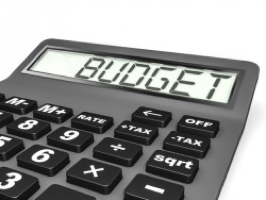 Today, Wednesday 18 March 2014, Chancellor George Osborne delivered his fifth full Budget to the House of Commons since the Conservatives came into power; Mr Osborne’s last before May’s upcoming General Election.
Today, Wednesday 18 March 2014, Chancellor George Osborne delivered his fifth full Budget to the House of Commons since the Conservatives came into power; Mr Osborne’s last before May’s upcoming General Election.
Below we’ve summarised the key talking points from Budget 2015 for small and medium-sized businesses (SMEs):
Fastest Economic Growth in the G7 in 2014
In his speech the Chancellor claimed that the UK economy grew faster than any other in the G7 in 2014, and it recorded its own strongest growth since 2007.
The Chancellor also told parliament that unemployment has been falling “in every region” across the country, with employment having reached its highest ever level at the end of last year. Mr Osborne did concede, however, that there remains a lot to be done to support businesses up and down the country.
Tax-Free Personal Allowance Increasing to £11,000 in April 2017
From April 2017 the tax-free personal allowance will increase from £10,800 to £11,000.
The increase, which was made to “make work pay and ensure families keep more of the money they earn,” is unsurprising given that this Government have increased the personal allowance every year since coming into power — it was just £6,500 when the Conservatives were elected five years ago. This further increase should be especially well received by employees of small businesses, as it allows them to keep more of what they earn.
Other Income Tax changes include:
- The income tax threshold will rise above inflation to £42,385 this year and to £43,300 from 2017/18
- The transferrable Married Couples Allowance will increase to £1,100
- The low emission vehicle tax rates will increase more slowly than other vehicles which will rise by 3% in 2019/20
- The share of income tax paid by the top 1% of earners is projected to rise from 25 per cent in 2010 to more than 27 per cent this year.
Fuel Duty Increase Cancelled
Though fuel duty has been frozen since 2011, it was due to be increased from September. During today’s Budget the Chancellor confirmed that this increase has been cancelled, with fuel duty being frozen again for at least another year (should the Conservatives stay in power).
The Government claim that should fuel duty remain frozen, as they wish, until the end of 2015-16, a typical motorist will have saved a total of £675.00 in the five-year period from 2011.
National Insurance Changes
Employers’ NI for employees under 21’s will be abolished from April 2015 and this will extend to include young apprentices from April 2016.
In addition, class 2 NI contributions for the self-employed are planned to be abolished, pending approval in Parliament.
Faster Broadband and Mobile Networks
Faster broadband and support for better mobile networks could provide a huge boost for SMEs, as unlike larger businesses that can afford to pay for costly, premium internet and mobile services, smaller businesses often have to stick to smaller providers.
During the Budget the Chancellor announced that the Government will be investing up to £600 million to provide better mobile networks, with the ambition that ‘ultrafast’ broadband of 100 megabits per second will become available to all businesses across the country.
Pensions Lifetime Allowance drops
The Lifetime allowance is to drop from the current £1.25m level to £1m. The Chancellor estimated that this would affect less than 4% of pension savers.
Pensioners will now be allowed to access their annuities following a change to the legislation and the tax at 55% rate will be abolished and replaced by tax charged at the marginal rate.
Savings and ISA Limits Increase
ISA tax-free limits have now been increased to £15,240 with a fully flexible ISA created.
There have been some complex revisions to the ISA rules allowing money to be transferred in and out of an ISA without losing the associated tax-free status.
The Government has also introduced a Help-to-Buy ISA, which will include a top-up from the Government to help renters build up a deposit.
On Savings, there will be a new personal savings allowance from April 2016, with an exemption for the first £1,000 of savings income. This would result in more than 95% of the population no longer paying any income tax on their savings income.
The Abolition of Annual Paper Tax Returns
Though few details were given on this plan, and it’s fair to be sceptical as to whether it would materialise should another party come into power after May’s General Election, the current Government have plans to completely abolish annual paper tax returns. This has been met with great enthusiasm, with the general public assuming this means ‘no more tax returns’, however, what this means, in reality, is that the information will need to be uploaded into new digital tax accounts instead.
The proposal is that information such as employment and pension income would be pre-populated in the account. This could be a positive step forward for individual taxpayers with straightforward accounts, however, as always, the devil is in the detail and taxpayers will still need to check the accuracy of the information and provide any details HMRC does not have.
Understanding Budget 2015
To speak with a professional to discuss how Budget 2015 affects your business finances, savings, and investments, contact us today on 020 7129 1199 or get in touch with us via our contact page to arrange a complimentary, no-obligation meeting.
